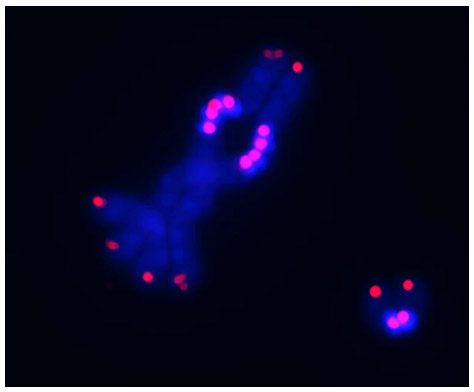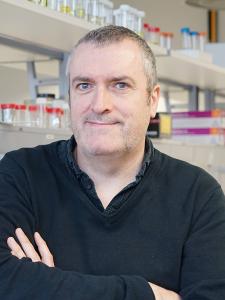Molecular Oncology Laboratory
The need to develop personalized therapies, in the case of tumor processes, not only promotes a better knowledge of the molecular events involved in the pathogenesis of cancer, but also the design of experimental models that allow studying the effect of the activation of certain oncogenes and / or the inactivation of certain tumor suppressor genes in response to antitumor therapy.
The group combines both aspects, developing cancer models that make it possible to study the influence of certain mutations on the pathogenesis and its response to therapy. Although the molecular basis of tumors is complex, the aberrant activation of certain intracellular signaling pathways, as well as the inactivation of pathways dependent on tumor suppressor genes, are characteristics common to most of them. Although great advances have been made in recent years in understanding the pathophysiology of some types of tumors, more and better preclinical models are needed that are capable of recapitulating certain tumor characteristics, such as invasiveness, cellular heterogeneity, or neoangiogenesis. In conclusion, the main objective of our group is, using these tools, to identify new targets that allow the development of new diagnostic and therapeutic approaches, which will contribute to improving the management of these pathologies.
-
Liñas de investigación
-
Membros
-
Publicacións seleccionadas
-
Resultados seleccionados
-
Proxectos
-
Alianzas
-
Patentes
Liñas de investigación
The Molecular Oncology group combines the study of molecular events involved in human pathologies, the generation of experimental models and new tools that allow the development and validation of new diagnostic and therapeutic approaches. At MOL, the different reseacrh areas are:
- New therapeutic targets
- Transition from low-grade to high-grade gliomas
- Cancer metabolism
- PARP-1 inhibitors beyond DNA repair
- Development and characterization of new tracers for diagnostic applications
- Biosensors as tools for identification and detection of cancer
- Identificaction and validation of new theranostic targets
- Nanomedicine
Publicacións seleccionadas
Development of a biosensor based on a new marine luciferase fused to an affibody to assess Her2 expression in living cells
Development of a nanocapsule-loaded hydrogel for drug delivery for intraperitoneal administration
From neural stem cells to glioblastoma: A natural history of GBM recapitulated in vitro.
PARP1 Deficiency Reduces Tumour Growth by Decreasing E2F1 Hyperactivation: A Novel Mechanism in the Treatment of Cancer.
Immortalization of a cell line with neural stem cell characteristics derived from mouse embryo brain
Resultados seleccionados

The oncogenic process is associated with numerous and important alterations of nuclear DNA. The DNA damage response (DDR) activation safeguard the integrity of the genome. At the same time, both mitochondrial activity and ROS production is highly increased in the early steps of tumorigenesis but mtDNA conserved its integrity along the process. Thus, the possibility of intervening in mitochondrial energy metabolism function in cancer is therapeutically promising. The mtDNA genome is kept by the cell as a "genetic sanctuary" during tumor development. This is compatible with the hypothesis that the mtDNA molecule plays an essential role in the control of the cellular adaptive survival response to tumor-induced oxidative stress. The integrity of mtDNA seems to be a necessary element for responding to the increased ROS production associated with the oncogenic process.




